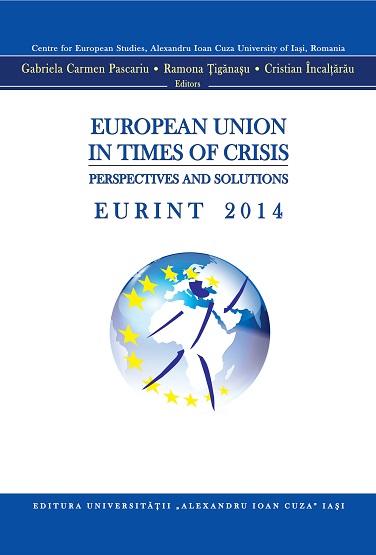THE THREATS TO EU INTERREGIONAL COHESION IN THE POST-LISBON AGENDA
THE THREATS TO EU INTERREGIONAL COHESION IN THE POST-LISBON AGENDA
Author(s): Adrian Gabriel CorpădeanSubject(s): Politics / Political Sciences
Published by: Editura Universităţii »Alexandru Ioan Cuza« din Iaşi
Keywords: Euroscepticism; democratic deficit; post-Lisbon agenda; regional cohesion; New Europe;
Summary/Abstract: The intricate context of the economic crisis and the ever more obvious failures of the Lisbon Treaty appear to have amplified a phenomenon which threatens the cohesion at regional and national level in several states across the EU. It is a reaffirmation of regional or subnational identities, prompted by an increase in Eurosceptical attitudes and the feeling of Euro-fatigue, not only at the core of European construction, but also in "The New Europe", namely East-Central member states. The mistrust in the latest reconfiguration of the EU's institutions, engendered by the Treaty of Lisbon, has once again triggered accusations of democratic deficit throughout EU-28. If one adds to this the chronic lack of confidence in national administrations expressed by several more or less autonomous regions, a pertinent scenario arises, entailing such perilous concepts as separatism, disintegration and unrest. The classic right to self-determination has yet to play its part in an increasingly tense European geopolitical context. This article mentions the hot spots across the EU which endanger its regional cohesion, as well as the current institutional and political background fostering the sinuous course of events in places such as Scotland, Catalunya or Venice, as prompted by the post-Lisbon state of affairs.
Journal: EURINT
- Issue Year: 1/2014
- Issue No: 1
- Page Range: 73-82
- Page Count: 10
- Language: English

